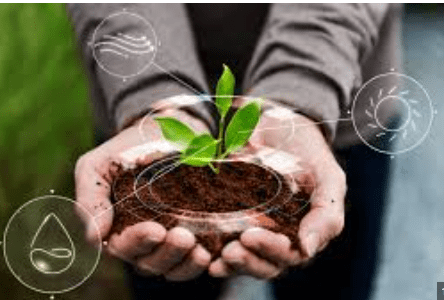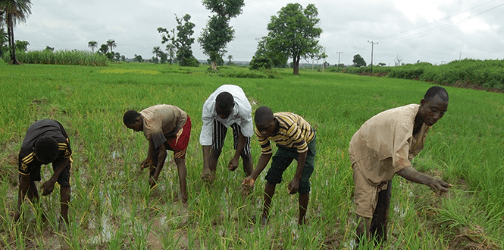
15 Sustainable Practices in Nigeria
15 Sustainable Practices in Nigeria – Sustainability has become an essential aspect of global consciousness, and Nigeria is no exception. As a nation with a rich cultural heritage and abundant natural resources, Nigeria has recognized the importance of adopting sustainable practices to ensure a greener future. In this article, we explore 15 sustainable practices being implemented in Nigeria, highlighting the country’s efforts towards environmental preservation and sustainable development.InformationGuideNigeria
15 Sustainable Practices in Nigeria

👉 Relocate to Canada Today!
Live, Study and Work in Canada. No Payment is Required! Hurry Now click here to Apply >> Immigrate to Canada-
Renewable Energy Sources:
Nigeria is embracing renewable energy sources to reduce its reliance on fossil fuels. The country has vast potential for solar, wind, hydro, and biomass energy. Initiatives such as solar power projects, the use of small-scale wind turbines, and the promotion of biogas production are contributing to a cleaner and more sustainable energy sector.15 Sustainable Practices in Nigeria
-
Energy Efficiency Measures:
Efficiency measures play a crucial role in sustainable development. Nigeria is focusing on energy-efficient technologies and practices to reduce energy consumption and minimize environmental impact. The adoption of energy-efficient appliances, building insulation, and smart grid systems are steps towards a more sustainable energy future.15 Sustainable Practices in Nigeria
-
Waste Management and Recycling:
To address the growing waste problem, Nigeria is prioritizing waste management and recycling initiatives. Efforts include waste segregation, the establishment of recycling plants, and the promotion of composting and organic waste management practices. These initiatives help minimize landfill waste, conserve resources, and reduce pollution.JAMB Form
-
Sustainable Agriculture:
Nigeria’s agricultural sector is crucial for food security and economic growth. Embracing sustainable agricultural practices such as organic farming, agroforestry, and efficient irrigation techniques helps preserve soil fertility, reduce water usage, and minimize the use of synthetic fertilizers and pesticides.
-
Reforestation and Afforestation:
Recognizing the importance of forests in maintaining ecological balance, Nigeria is actively involved in reforestation and afforestation projects. These initiatives aim to combat deforestation, protect biodiversity, restore degraded lands, and promote sustainable forest management practices.
-
Water Conservation:
Water scarcity is a growing concern in Nigeria. To promote water conservation, initiatives such as rainwater harvesting, efficient irrigation systems, and public awareness campaigns are being implemented. These efforts ensure sustainable water use and help mitigate the impacts of droughts.
-
Sustainable Transport:
Nigeria is addressing the environmental challenges posed by transportation by promoting sustainable transport options. Initiatives include the development of mass transit systems, the adoption of electric vehicles, and the improvement of pedestrian and cycling infrastructure. These measures reduce air pollution and traffic congestion while encouraging healthier and greener modes of transportation.
-
Eco-friendly Construction:
Green building practices are gaining momentum in Nigeria. The use of sustainable materials, energy-efficient designs, and proper waste management during construction contribute to reduced environmental impact and improved energy efficiency in buildings.
👉 Relocate to Canada Today!
Live, Study and Work in Canada. No Payment is Required! Hurry Now click here to Apply >> Immigrate to Canada-
Environmental Education and Awareness:
Raising awareness and promoting environmental education are crucial for sustainable development. Nigeria is emphasizing environmental education at all levels of education and organizing campaigns to sensitize the public about sustainable practices and the importance of environmental conservation.
-
Conservation of Natural Resources:
Efforts to conserve natural resources in Nigeria include the protection of wildlife habitats, sustainable fishing practices, and the preservation of wetlands and natural reserves. These measures help maintain biodiversity and ensure the sustainable use of natural resources for future generations.NYSC Portal
-
Green Entrepreneurship:
Nigeria is witnessing a surge in green entrepreneurship, with innovative startups focusing on sustainability and environmental solutions. These ventures include renewable energy companies, eco-friendly product manufacturing, waste management services, and sustainable agriculture initiatives. Green entrepreneurship creates jobs and drives economic growth while promoting sustainable practices.JAMB Result
-
Community-Based Conservation:
Community involvement is crucial for successful sustainability initiatives. Nigeria is encouraging community-based conservation projects, empowering local communities to participate in environmental decision-making, sustainable land management, and biodiversity protection.
-
Sustainable Tourism:
Nigeria’s rich cultural heritage and natural beauty offer significant opportunities for sustainable tourism. By promoting responsible tourism practices, conserving ecosystems, and supporting local communities, Nigeria aims to develop tourism in a sustainable and environmentally friendly manner.
-
Green Policies and Legislation:
To ensure long-term sustainability, Nigeria is enacting green policies and legislation. These include environmental impact assessment regulations, climate change mitigation and adaptation strategies, and sustainable development frameworks. Such policies provide a legal framework for sustainable practices and encourage compliance.NYSC Portal
-
International Cooperation and Partnerships:
Nigeria recognizes the importance of international cooperation in achieving sustainability goals. The country actively participates in global initiatives, such as the Paris Agreement and the United Nations Sustainable Development Goals, collaborating with other nations and organizations to address common environmental challenges.Love Messages
Conclusion:
Nigeria’s commitment to sustainability is evident through the implementation of various practices aimed at mitigating environmental degradation and promoting sustainable development. From renewable energy adoption to waste management, sustainable agriculture, and community involvement, Nigeria is making strides towards a greener future. By continuing to prioritize sustainability and embracing innovative solutions, Nigeria can pave the way for a more environmentally conscious and prosperous nation. Romantic Love Messages
Check: JAMB Result
Check and Confirm: How much is Dollar to Naira today








